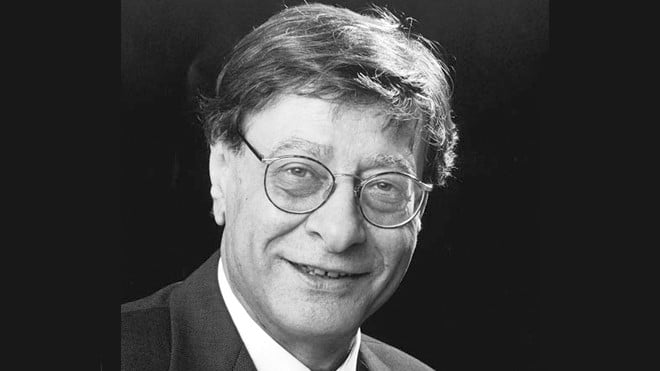
The rendition of poems by Mahmoud Darwish into Urdu by Anwer Sen Roy is a job well done

The mere name of Mahmoud Darwish evokes memories of a wandering poet, who continued to weave the haunting images of his homeland even after he was forcibly driven out of it at age 17. Do I need to mention here the name of his country? Perhaps, not. Because Mahmoud Darwish and Palestine are inseparable.
When you talk of Darwish, one’s thoughts naturally drift to Palestine or vice versa. Palestine ran through his veins. Till his last breath, he wrote powerful poems on the land of his dreams, its people and torments of exile and dispossession.
Darwish became a global voice for people who feel pangs of homelessness while using the motif of exile in his poetry. Luckily, in Urdu as well as in many languages of the world, he is no stranger and quite a few translations of his poems are available in Urdu.
Thanks to the gigantic effort of Anwer Sen Roy, a journalist, broadcaster and novelist of no mean repute, we have in a book, titled ‘Jughrafeyay Ka Maatoob’, a rendition of poems by Mahmoud Darwish. Roy has also translated poems of another giant, Syrian poet Adonis, into Urdu and this book is recently published. One hopes he will further enrich literature with his brilliant translation skills.
Critic Dr Nasir Abbas Nayyar has rightly pointed out in the book’s foreword that Darwish was against aggression and forcible eviction of people from their native lands. But he also believed in giving equal rights to Jews living in Palestine. Nayyar quotes from an interview of Darwish where he states "Both the Arabs and Jews enjoy the right of living in Palestine". Thus, there emerges a humane idea of peaceful co-existence with even your ‘enemy’.
One finds oneself submerged in a new world that the master poet conjures up, which does not run out of love. One sees a poet who tells you that deep down in the hearts, the grieving Palestinian Muslim and the Israeli gun-toting soldier dream for same things and places. Both are human, and they feel and share the same way. They are nostalgic about a shared past when fighting with each other.
In his classic poem, ‘Fauji Jo Sufaid Sosan K Khwab Dekhta hai’, the soldier bares his heart, as he says that grief is just like a white bird and it cannot enter in a battlefield. He goes on to add that grieving is a sin for a soldier because he has to be like a deadly machine in the battleground. When it comes to the question of identity, Darwish says he is but an Arab and has no ill-will for any other nation or country. He warns the usurpers that though they feel and dream alike, they must not strip him of his basic rights and be aware of his hunger and anger. All he is asking from them is to recognise his rights and allow him to live like a normal human being on his motherland.
Mahmoud Darwish, like a true son of the soil, sings Arab songs and wants his identity back. He is for a peaceful world where Muslims and Jews may live side by side without any animosity.
There are more than 400 pages in the book where we get to know the amazing world of Darwish we can relate to -- as he creates the eternal ditties of love, grief, loneliness, homelessness etc.
Anwer Sen Roy has done a remarkable job in presenting one of the best poetry of the world. Being a veteran fiction writer and poet in his own right, he was best suited to do the job. It is a must read.